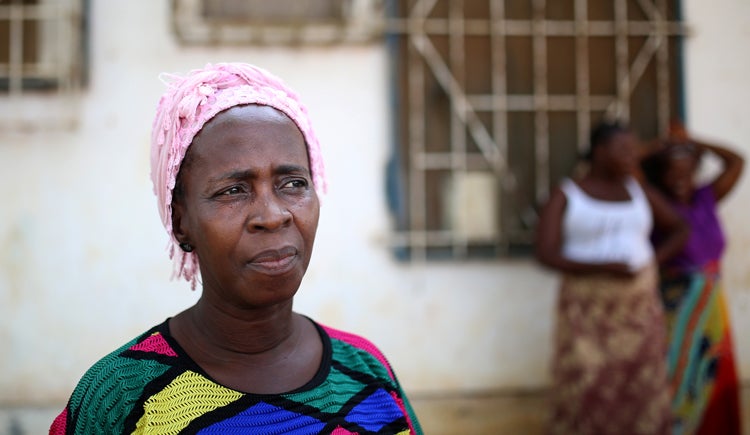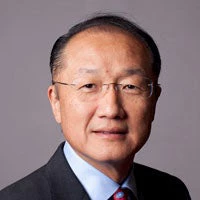
© Dominic Chavez/World Bank
On March 5, Liberian physicians discharged Beatrice Yardolo, an English teacher, from the hospital, hoping that she would be their last Ebola patient. Unfortunately, last Friday another person in Liberia tested positive for the disease that has killed more than 10,000 people in West Africa.
The bad news was a reminder that the world must remain vigilant and insist that we get to zero Ebola cases everywhere. We also must support Guinea, Liberia, and Sierra Leone in their efforts to build back better health care systems to prevent the next epidemic.
Beatrice survived Ebola, but she and the other survivors have paid dearly because of the outbreak. She lost three of her 10 children to Ebola, her home was encircled in quarantine, and she’s been unable to work. She and her country face a daunting road back to recovery and they remain at risk of Ebola as long as there is a single case in the region.
It didn’t have to be this way. The first global alert on the Ebola outbreak came one year ago, when its spread was still relatively limited to forested areas in southeastern Guinea. Once we recognized the severity of the epidemic, the World Bank Group committed more than $500 million to the three governments to help finance their immediate response. Although we disbursed the money in record time, it started flowing about eight months after the outbreak began because we and the rest of the international community failed to react sooner.
The lessons from the Ebola outbreak are clear, and more to the point, they are not new. With every previous outbreak—SARS, Avian flu and others—the global community has committed to building better systems that would be capable of stopping the next epidemic. The political will to do so lasts a few months, but then we forget.
This time, we must not forget and we should turn each of the lessons below into a clear plan to finally build a pandemic response capacity that is equal to the challenge.
First, we must ensure that every country has a robust and resilient health system. This means a system that can deliver quality, essential health care and preventative services to everyone. Countries also need effective disease surveillance and diagnostic capabilities to rapidly identify, treat, and contain outbreaks. The Ebola crisis has made clear the significant economic downsides of failing to invest adequately in the health sector: These three countries have lost at least $1.6 billion in income.
Second, communities must be empowered to serve as the front line for disease prevention and response. We know, for example, that a major driver of this epidemic was unsafe burials. It was only when traditional and faith leaders led the messaging and response that aggrieved family members and communities embraced safe practices. The substantial investments that have been made during the response in community health workers and community mobilization efforts should now be strengthened.
Third, the Ebola crisis exposed the fragility of these countries. A health crisis became a development crisis. That’s why, for example, we are providing more than 10,000 tons of maize and rice seeds to more than 200,000 farmers across the three countries in time for the April planting season. We also know without investments in safe schools, roads, electricity, and telecommunications, countries won’t be able to provide effective basic health services or contain the next outbreak.
Last but not least, the global health system is ill-equipped both in terms of outbreak preparedness and response. A speedy response can save thousands of lives and potentially trillions of dollars. To help do this, the World Bank Group is developing the concept of a global pandemic emergency facility.
Our goal is to work with partners to create a new financial instrument that can rapidly disburse a large amount of funds within eight hours, not eight months, of an outbreak. We need strong technical coordination led by a much bolstered World Health Organization; timely interventions involving corps of medical professionals, logistics experts, transport, pharmaceutical and communications companies; and financial support from public and private financial institutions.
If we had this in place, Ebola might never have reached Beatrice Yardolo’s village. Her health would have been strong, her job secure, and all of her children thriving. We must do better next time. We owe it to Beatrice and to the thousands of other Ebola survivors to stop the next epidemic in its tracks, before it robs nations of hope and opportunity. As an infectious disease physician and president of the World Bank Group, I promise to do everything in my power to support the building of a global pandemic response capacity that can protect people and the global economy. This time, all of us must insist that we don’t forget.
This blog post originally appeared on TIME.


Join the Conversation